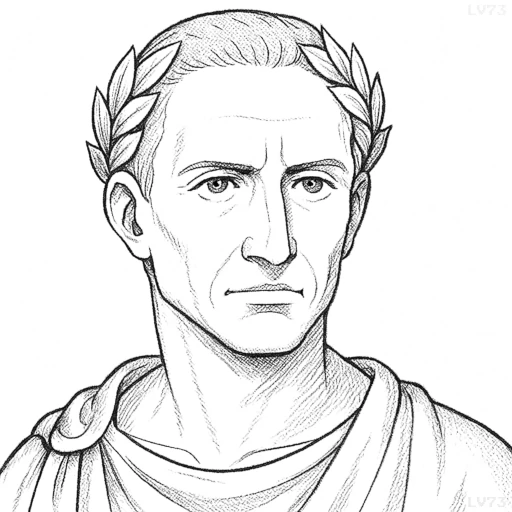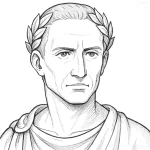“It is not these well-fed long-haired men that I fear, but the pale and the hungry-looking.”

July 12, 100 BC – March 15, 44 BC
Roman
Military General, Statesman, Dictator of the Roman Republic, Author
table of contents
Quote
“It is not these well-fed long-haired men that I fear, but the pale and the hungry-looking.”
Explanation
In this quote, Julius Caesar expresses a keen awareness of human ambition and political threat. The “well-fed long-haired men” symbolize those who are comfortable, indulgent, and unlikely to challenge power, while the “pale and hungry-looking” refer to men who are restless, driven, and potentially dangerous. Caesar feared not those content with their status but those with nothing to lose and everything to gain, for ambition born of deprivation often fuels revolution and betrayal.
Historically, this line is often connected to Caesar’s distrust of Cassius, one of the chief conspirators in his assassination. According to Plutarch and dramatized by Shakespeare, Caesar viewed Cassius as lean, intense, and too thoughtful—a man who brooded over power and harbored dissatisfaction. In contrast, men who indulged in luxury were seen as less of a threat because their ambitions had been satisfied. Caesar’s insight reveals a powerful psychological truth: the most dangerous opponents are often those who feel excluded or marginalized.
In contemporary terms, the quote warns against underestimating the quiet, driven individuals who operate on the fringes of power or success. Whether in politics, organizations, or personal relationships, it is often the ambitious outsider, not the content insider, who poses the greater challenge. Caesar’s words endure as a timeless principle in understanding where real threats and upheavals tend to originate.
Would you like to share your impressions or related stories about this quote in the comments section?


